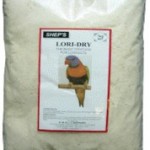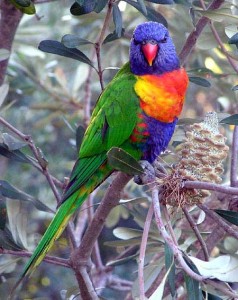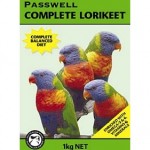Caring for Lorikeet’s
Bringing a baby Lorikeet home for the first time.
For the first 3 days- do not over stress your new baby lorikeet but talk to him or her gently and give them a chance to get used to the new environment.
Environment
Cage– Choose a cage which is the biggest possible as this not only will make your lorikeet happier but will make your lorikeet a better pet as lorikeets placed in a small cage tend to be hard to train and become aggressive. Remember they need sufficient room for their toys and swings and a place to have a good flap of the wings.
Toys– Essential for these intelligent birds these birds make full use of all kinds of toys including foot toys, hanging toys, natural chew toys, luffa toys, plastic toys and so on. Why are environmental enrichment toys so important? It actually and literally keeps birds happy and stops aggression if you are wanting a friendly happy pet instead of an aggressive monster it is essential to raise your bird properly while the birds young and the brain is developing.
Swings– Great for these active birds as they have fun with swings it is also a form of exercise as they use muscles they normally wouldn’t use when standing on a still perch.
Some important tips for first time owners of baby Hand raised lorikeets.
Lite and mice spray– wait a week before spraying your new lorikeet with mite and lice spray, continue to spray your birds every 3 months for the remainder of the birds life.
Worming– Never worm a baby lorikeet right away, wait till they are at least 12 weeks old before worming and do not worm a bird until they have had 2 weeks to get used to their new environment. If you already have birds, worm them all at the same time.
Clean environment- This is very important for baby lorikeets as they have an undeveloped immune system and can become ill
Wet mix– Do not let wet mix spoil- change every 4 hours in hot weather as baby lorikeets are very delicate to bacteria as they have un developed immune systems.
Diet for Lorikeets
For the Health, vitality and longevity of pet lories lorikeets it is important to feed them a well researched quality lorikeet nectar supplement. There are many brands of lorikeet food many have good ingredient while leaving some to be questionable. If you are unsure talk to your local bird experts as they will have seen the breeding results in feeding good quality foods. Unlike other parrots Lorikeets feed on nectar from flowers as they main part of their diet in the wild.
Many diseases found in captive lorikeets can be avoided with the correct diet and feeding practices.
Lorikeet wet mix– this wet mix is essential for Baby lorikeets we recommend feeding baby lories a mix of lorikeet wet mix and hand rearing formula. This mix should be fed as a poor-able mixture resembling milk. Do not let the wet mix spoil especially in summer you will need to be vigilant as spoil t food can cause a bacterial infection which can cause sudden death. Wet mix is important and should be fed to lorikeets through the remainder of the birds life, after a lorikeet is 8 weeks old it may be weaned onto Lorikeet dry mix which is easier to feed and can be left out all day. Some great wet mixes include Sheps wet mix, Passwell Lorikeet food, Wombaroo lorikeet food, avione rearing and conditioning food, attraction lorikeet food, vetafarm lorikeet food and Elliots Lorikeet.
Lorikeet Dry food– This should be on offer at all times and must be replaced freshly on a daily basis. Some Mixes we have trialed with our birds which we recommend are Sheps Lori Dry, Passwell lorikeet food, Attraction lorikeet food, and avione lorikeet rearing and conditioning. You may have noticed that some of these were mentioned above this is because these foods mentioned twice can be used as a wet mix or a dry mix.
Vitamin supplement– Added via the water supply some Lorikeets are sensitive to high levels of vitamins so i would not over dose them but add to water maybe 2 times a week. Because of the reason that some lories are sensitive to High levels of vitamins only add vitamins to a lorikeets diet that has no vitamins added to the formula already. Sheps wet and sheps Dry have been specifically designed not to have vitamins added for this reason. Do not add Vitamins to the other Brands of lorikeet food mentioned above.
Fruits– pears, apples, citrus, watermelon, stone fruit, kiwi fruit, strawberries,rockmelon, banana, star fruit, pomegranate and grapes in moderation.
Vegetables and greens– Silver beet, sweet potato, carrot, green beans, peas, corn, capsicum, endive, broccoli
Calcium– Do not feed your lorikeet grit as a calcium source but instead add a calcium source to the water or supply calcium bells or a calcium perch.
Vitamin D supplement– This is essential for all birds to absorb calcium this supplement is not necessary if your bird gets over 3 hours of unfiltered sunlight a week. FYI sun through a window is filtered and they are enable to receive the necessary vitamin D
Iodine– many Lorikeets are iodine deficient
Water– always have a fresh supply of water and be careful as sometimes they can bath in their water bowl on a hot day and die of dehydration due to a lack of water.
Wild flowers– Be very careful in Baby Lorikeets clippings from plants as they have not built their immune systems yet and can be highly susceptible to bacteria’s spread from wild birds. Do not feed baby Lorikeets wild flowers until they are 6 months old. When feeding lorikeets flowers stick with native Australian trees.
Do not feed – Seed, lettuce, avocado, cocoa, milk or alcohole.
Training– visit our bird training page



